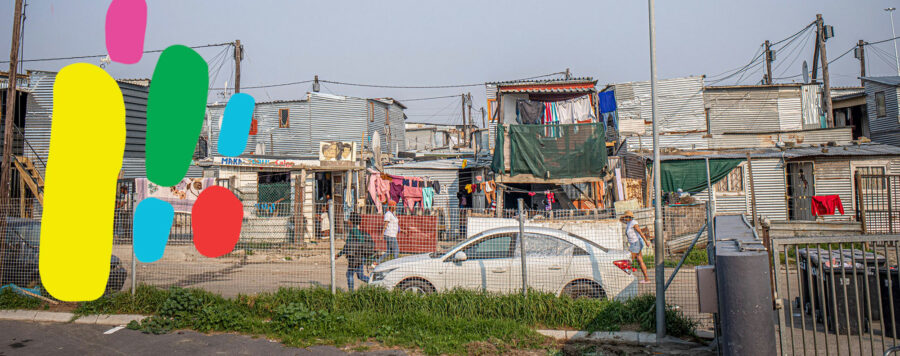Resources
Walk in centre
We have a support centre in the township of Dunoon, Cape Town where we assist the vulnerable in addressing challenges that affect their education and wellbeing. Dunoon could be classified as a severely impoverished community with very little income coming into homes. Recently we collected data using the ‘poverty stoplight tool’ which revealed key issues community members face. It was very apparent from the data that Dunoon is a very unsafe community. Feeling secure is a basic need for humans and living in an environment where your security is constantly threatened has severe consequences in terms of psychological health and your ability to self actualise. There is evidence of a large amount of trauma present in the community which translates into apathy and hopelessness. People are in survival mode and struggle to confront the reality of the circumstances they live in may have on their psyche.
Our centre is a safe spaces for individuals to start processing these feelings, a place where people can process their trauma and find real motivation. This lines up with our core strategy – to offer a safe place for individuals to process and find ways to unlock their own potential. To do this effectively we have a case manager and a referral pathway in place for counselling and our staff have been trained to identify trauma in participants.
The closest government support service is situated in Milnerton and many people from Dunoon cannot afford the transport fee. The Boost support and learning centre has become a well known and accessible space for vulnerable people in need of assistance. Our walk-in centre assists people from the community with school placements, learning problems, cases of neglect and abuse etc. We try to assist where we can and refer cases to organisations in our partnering network. We assist with an average of 150-200 cases a year. We also provide travel allowances to enable people to visit the different organisations that can assist them. Our facilities are open to organisations and social workers from the Department of Social Development to meet with their clients as Dunoon is not very accessible and safe.
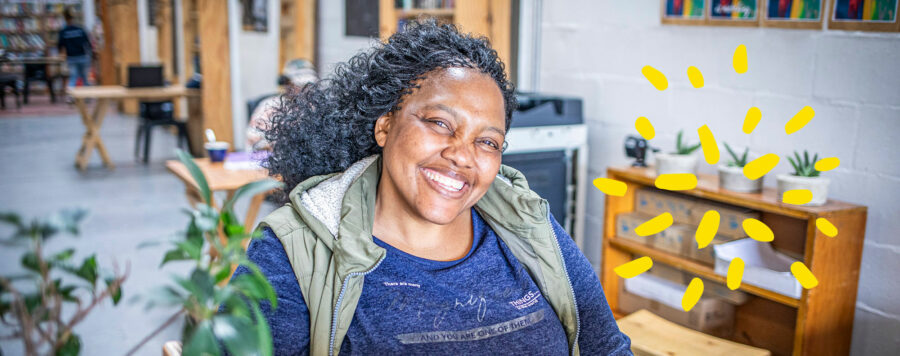
Computer lab
Digital inequality in South Africa is a significant issue, as there is a large gap between those who have access to digital technologies and those who do not. One of the primary factors contributing to digital inequality in South Africa is the high cost of internet access. This cost can be prohibitive for many South Africans, particularly those living in poverty. Another factor contributing to digital inequality in South Africa is the lack of digital skills and education. Many South Africans, particularly those living in disadvantaged communities, lack the skills necessary to effectively use digital technologies.
Our computer lab addresses digital inequality in South Africa by providing digital skills training and education, and increasing access to digital devices. We support learning by giving access to computers, internet and printing.The computer lab is utilised by adult students, job seekers and school learners. Our lab is visited by an average of 1000 individuals per year.
We have also joined the DG Murray trust and 200 other Public Benefit Organisations by signing the survey petitioning ICASA to create a mechanism for the zero-rating of PBOs and .gov digital content as a matter of urgency. The call is on mobile network operators to zero-rate the services of all public benefit organisations (PBOs) that provide digital content for early learning and education.
Zero-rating – which makes all digital content free to the user and paid for by the network operator – has been a condition of licence for all network operators who bid successfully for additional radio spectrum in April 2022. The successful bidders included MTN, Vodacom, Cell C and Telkom. However, ICASA has failed to put in place a system to ensure the network operators comply.
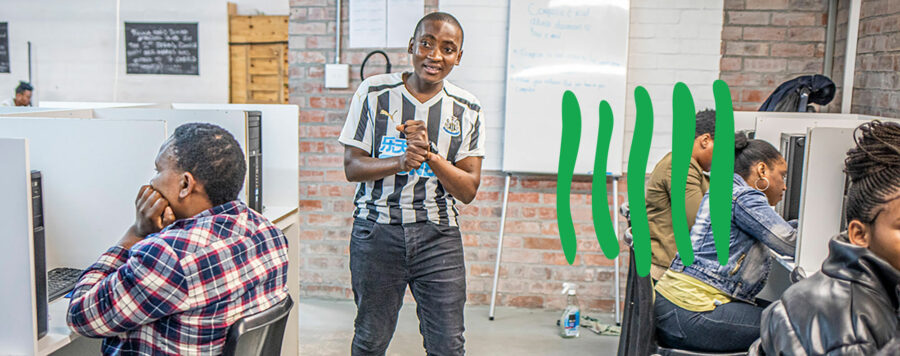
Recycle swop shop
Giving hand-outs can create a culture of dependency, in which individuals come to rely on external support rather than taking responsibility for their own well-being. We do not want that but the reality of many families in our context is that they can’t even afford basic essentials and school supplies. It is important to take a nuanced and compassionate approach that recognises the complex realities of poverty and works to address the root causes of inequality.
Therefore, we launched the waste-not project to make school supplies, food and clothing affordable for all families. This program allows families to exchange recycling for supplies. The participants are also encouraged to join in our learning programmes.
The recycle swop shop programme not only incentivises recycling but also promotes the reduction of waste in the community. It provides an opportunity for individuals to exchange items they no longer need for something they do need, while also promoting a sense of community and environmental responsibility. Additionally, the programme creates employment opportunities for individuals involved in the collection and management of recyclable materials.
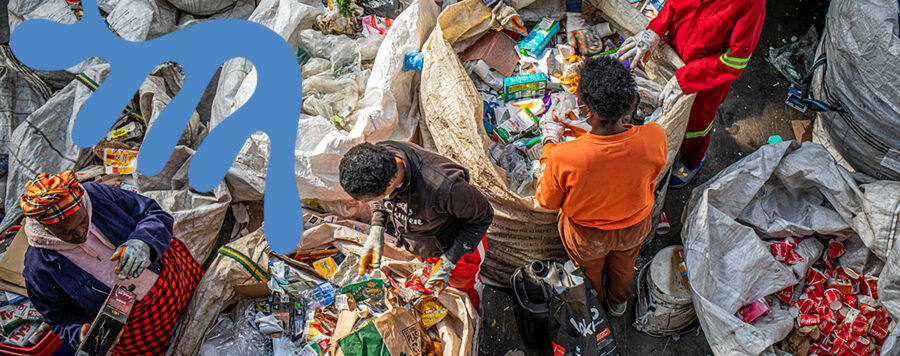
Food garden & food garden assistance
Our Boost food garden and the Silverleaf Primary food garden continues to provide inspiration and greenery in an area where there are almost no trees or gardens. Dunoon is extremely over populated and sewerage problems and waste pollution has a very real psychological effect on the wellbeing of the residents.
Our food garden initiatives promote a feeling of hope and possibility. The aim is to establish a food garden at every school in Dunoon. Food gardens play an important role in beautifying townships, transforming otherwise neglected spaces into vibrant and attractive areas that promote community well-being and environmental sustainability.
Soup kitchens
We support three Soup Kitchens with the food donations we receive through the Foodforward partnership. FoodForward SA connects a world of excess to a world of need by recovering quality edible surplus food from the consumer goods supply chain and distributing it to community organisations that serve the poor.
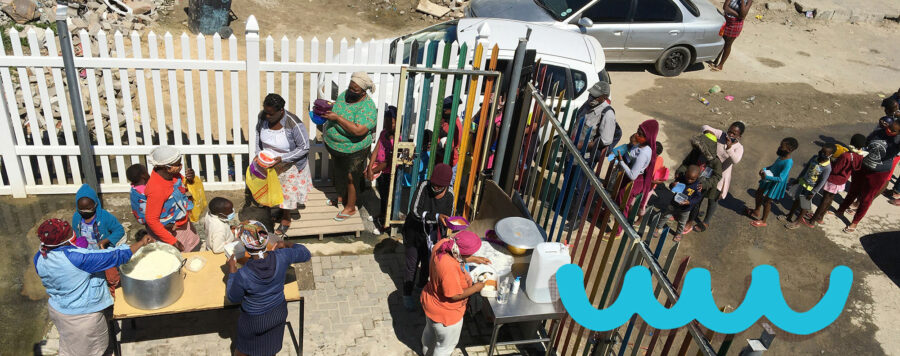
Student sponsorship
We take great care to unlock the potential of our staff and make every attempt to assist in the sponsorship of study fees, transport and other resources when needed.
Study sponsorship for employees can be a powerful tool for unlocking potential and driving personal and professional growth. By investing in our employees education and development, we aim to create a motivated and skilled workforce while it also serves as a retention strategy. Employees are more likely to commit to our organisation for a couple of years which in turn increases the impact of our work. Our employees build strong relationships with our learners and help to create a safe space for connection and learning.
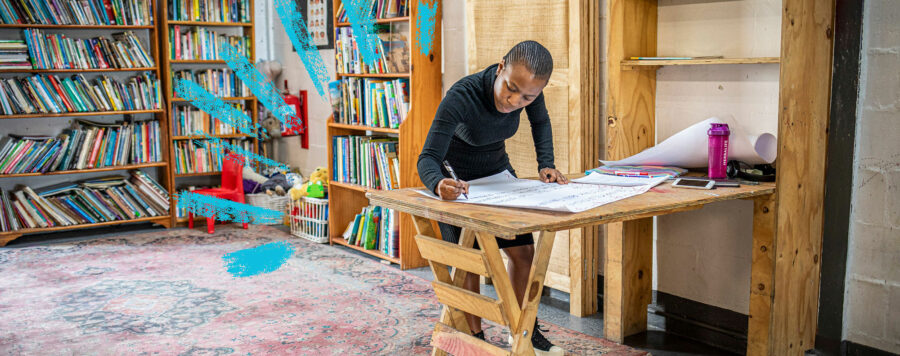
Community events
Community events bring people together, fostering a sense of belonging and connectedness. In Dunoon, social isolation and fragmentation are prevalent and the aim of our community events is to provide opportunities for residents to interact, form relationships, and build strong support networks.
We host:
- Youth day celebration where the elderly from the Dunoon old age home where invited for a meal and a concert.
- Family Strengthening workshops at our centre for our Aftacool parents. It is a three day workshop on Saturdays where parents and children learn about communication, how to spend quality time together and self regulation. It is fun and interactive!
- Aftacool Talent Show and theatre showcase where all our Aftacool clubs come together and get an opportunity to perform and interact.
- Gold Youth Talent Show and Beauty pageant where all the High School learners from the three different sites come together and interact and share their talents.
- Community market was piloted at the Dunoon Taxi Rank to showcase the best Dunoon has to offer. We would love to turn it into a monthly event!
- Library Visits to introduce staff, volunteers and beneficiaries to Library system and obtain library cards
